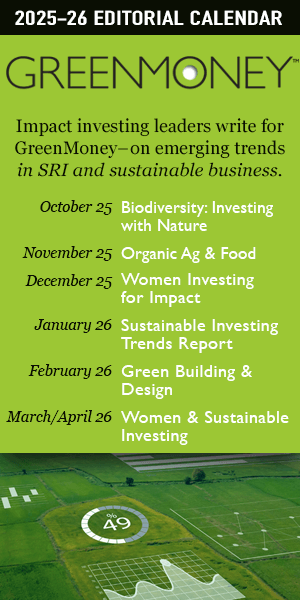Three ideas for getting started as local impact investors
A decade from now, local impact investment funds will be an essential asset for most place-focused foundations. Why? Principally, communities need this type of flexible investment. Foundations leading these funds demonstrate their willingness to remain relevant in their communities – putting distance between themselves and other financial services companies and online tool providers that offer transactional grantmaking services. Such organizations replace functions performed traditionally by local foundations. Local investing, like community leadership or growing unrestricted endowment, is something that is difficult for big banks or online tools to replicate. It keeps foundations relevant as mission-aligned endowment stewards.
Of course, we’re not there yet. There’s a lot for foundations to learn and questions to unpack. What is a royalty or a participation? This isn’t what my investment committee should be doing, is it? We’ve defined the ideal local impact investment in our investment policy, but how do we actually find opportunities in our community? Will my community banks see this as a threat? How much of my endowment should I commit? Isn’t this risky? Is this legal? Any foundation leader considering becoming a local impact investor is right to feel like there is a long list of to-dos and no clear place to start.
Foundation leaders need starting points, or clear and productive ways to build the muscles needed to be a local impact investor. Here are three of our favorites:
Just Do It
For some time, the LOCUS team and philanthropic impact investors have been telling foundations to quit talking and just make an impact investment. You’ll learn best by doing. In these early days of practice, puzzling through an actual investment highlights the ways a foundation must evolve to deploy their dollars. Sourcing, assessing, and servicing these assets will take the board and staff conversations from the theoretical to the practical. For a first straightforward investment, consider a loan to a reliable local nonprofit. Another option is partnering with nonprofit lenders like community development financial institutions. You can find out if your community has one here.

Develop an Action Plan
Some risk averse CEOs and boards are uncomfortable experimenting with actual investments. Instead, they prefer that their policies, governance, due diligence, servicing and reporting processes be worked out prior to investing their first dollar. For such risk-averse foundations, a good alternative is to first abstract what you do, qualify what’s working, and identify how to evolve comfortable practices to become a local impact investor. This year, LOCUS started helping foundations through an assessment called Local Investing for Impact Fundamentals which asks staff and board leaders a set of probing questions to understand their assets, skills and relationships. Then, in an action-oriented planning process, the foundation explores how their assets might be leveraged through concrete short and medium-term steps to gradually become a local impact investor. Another alternative: assess your landscape, identify capital gaps, and build the case to become a local investor. This process might highlight partners in your region who are already leading efforts that you can join.
Find a Learning Hub
Another obvious starting point, especially for those who learn by doing but also want help along the way, is field learning opportunities. Mission Investors Exchange (MIE) provides great resources, workshops and conferences that can be an important entry point. LOCUS offers field learning opportunities too. With our partners at the Aspen Institute Community Strategies Group, NetWork Kansas and the Kansas Health Foundation, we are in the middle of a Kansas-based learning cohort to assist community foundations in growing their economic development efforts, and, if relevant, build a local impact investing program to support that effort. This peer-learning model builds off the great programming of Aspen, CF Leads, and the Charles Stewart Mott Foundation who introduced a powerful peer learning model for community foundations exploring community leadership. We and others hope to offer more of these learning opportunities to help all kinds of community foundations take their nervous first steps into prosperity-building local impact investing.
Fortunately, the “where to start” dilemma will be a short lived. Every day, the great work of community foundations like Atlanta, Baltimore, Humboldt, New Hampshire and so many more will distill ways of doing that will be adopted by others. In fact, if you’ve made an opportunistic local investment, we want to hear about it! In the meantime, just doing it isn’t bad advice. Neither is taking an assessment approach like our Fundamentals. For those of you who like facilitated learning opportunities, turning to MIE, LOCUS or others for workshops or peer learning cohorts can be the right approach.
If you’d like to talk about good starting points for local impact investing and your foundation, please reach out to Travis Green at travis@locusimpactinvesting.org
Article by Travis Green, a solutions consultant with LOCUS Impact Investing. Travis assists place-rooted foundations and organizations in implementing regional community economic development strategies to help people and places prosper. He authored a series of practitioner guides on value chain economic development focused on wealth building for low-income households. He also coordinated Rooting Opportunity, a national conference on emerging economic development practice. Previously Travis served as program manager at the Aspen Institute in Washington, DC focusing regional community economic development and community development philanthropy.


















